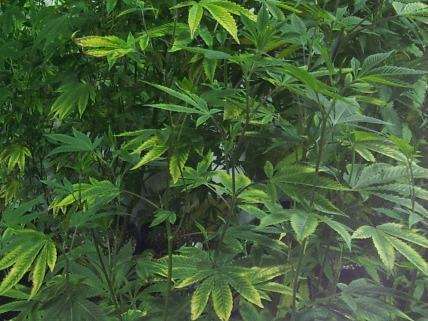Voters Approve Marijuana Legalization in Two States and D.C.

Yesterday voters approved three of the four major marijuana reform measures on this year's ballots, legalizing marijuana for recreational use in Alaska, Oregon, and Washington, D.C. All three of the general legalization measures succeeded, while Florida's medical marijuana initiative failed to win the supermajority it needed, although it was supported by most voters. Here is a summary of the results, with links to more-detailed discussions:
Washington, D.C. Initiative 71, which legalizes possession, home cultivation, and sharing of marijuana but not commercial production or distribution, won by a margin of more than 2 to 1: 69 percent to 31 percent. The D.C. Council now must decide whether and how to license growers and sellers, while Congress decides whether to tolerate this dramatic break from 77 years of prohibition in the nation's capital.
Oregon. Measure 91, which legalizes the recreational marijuana business along with possession and home cultivation, was supported by 54 percent of voters. That made Oregon the third state to approve broad legalization.
Alaska. Private possession of marijuana for personal use has been legal in Alaska since 1975, but cannabis consumers there still have no legal place to buy it. Voters addressed that problem by approving Measure 2, an initiative similar to Oregon's. It was supported by 52 percent of voters, making Alaska the fourth state to legalize marijuana.
Florida. Amendment 2, which would have made Florida the 24th state and the first in the South to allow medical use of marijuana, was favored by most voters but fell two points short of the 60 percent needed to amend the state constitution. Its backers say they will try again in 2016.
Just two years have elapsed since voters approved marijuana legalization in Colorado and Washington, where state-licensed recreational sales began only this year, and already the number of states with legal pot has doubled. Given the minimal track record in Colorado and Washington, the approval of legalization in D.C., Oregon, and Alaska suggests that the antiprohibitionist movement is on a roll. There may be bigger victories in 2016, when legalization is expected to be on the ballot in California, Arizona, Nevada, Montana, Maine, and Massachusetts.


Show Comments (10)